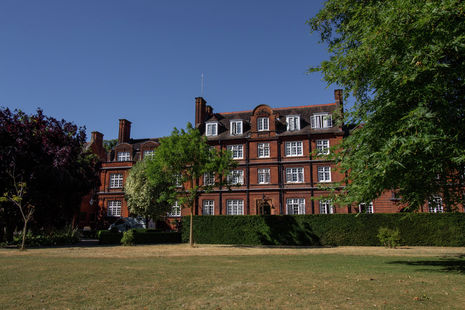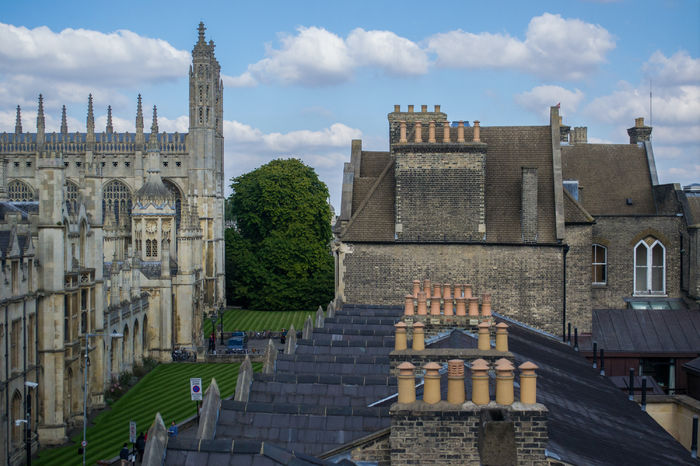The importance of access (after admission)
“I’m calling for substantive change. Until that happens, in the words of one Black Oxford student, I refuse to keep feeding my people to the wolves,” writes Olivia Hylton-Pennant

Not too long ago, I made the conscious decision to stop openly supporting access efforts designed to attract Black students to Cambridge. This came after years of Access work as a JCR Access Officer, College SLO and CUSU Access Officer. Following the Guardian’s recent article and ongoing discussions on Twitter, here’s why I no longer feel comfortable advocating for a system in which Black lives simply do not matter.
My first exposure to Cambridge came through the now defunct GEEMA (Group to Encourage Ethnic Minority Applications) scheme. I attended two summer schools with kids from across the UK. I sat through mock lectures, met current Black students who I aspired to be like and enjoyed silent discos at Newnham and Churchill. I was so influenced by these experiences that I applied to Newnham and was convinced that Cambridge was the place for me and people who looked like me.
The year that I matriculated, I was one of three Black people to do so in my college and the only Black girl on my course. For the first time in my life, I became hyperaware of the fact that I was Other. This was exacerbated by the dearth of Black Philosophers cited throughout Tripos, being referred to as “coloured” by a college porter and having my CamCard checked every time I walked through Kings (unlike my white peers) – amongst other things which made me feel as if I did not belong.
In spite of this, I pushed my feelings aside because I felt ‘lucky’ to be here and compelled to pay it forward, on account of my own experiences with Access Schemes. I went on countless school visits, gave numerous tours of college and established initiatives to encourage more applications from Black students. Whenever questions came up about my own experiences as a Black student, I offered thinly-veiled answers so as not to discourage future applicants.
“Like most Access initiatives, Black Access initiatives focus on getting students in, with no attention given to whether or not they get on.”
Like most Access initiatives, Black Access initiatives focus on getting students in, with no attention given to whether or not they get on. On average, Black students are 1.5 times more likely to drop out of university than their White and Asian counterparts. There are also inequitable outcomes across universities and at Cambridge in particular, data has shown that Black African and Caribbean students are collectively twice as likely to receive a Lower Second or a Third than average.
Studies have shown that in order to improve the outcomes and experiences of students, they must feel a ‘sense of belonging’. This sense of belonging is composed of two factors: ‘fit’ and ‘contact’. Fit identifies a student’s perceived cohesion within a group, while contact refers to their relations with others.
Before coming to Cambridge, I didn’t understand the importance of this. I remember reading about the experiences of someone who’d intermitted twice before dropping out completely and vowed that that would never be me. Ironically, I did intermit twice – the first time to be CUSU Access Officer and the second time because my mum had died, and this went largely ignored by my college. I struggled with the Philosophy faculty’s admiration of the Analytic tradition which marginalises race and racial justice as issues. I hated that Black figures were mostly omitted, except when explicitly talking about race, used as examples in Logic or when the n-word came up. (And yes, the actual word was used by a lecturer who deemed it perfectly acceptable because he was using it in scare quotes). It was only in my third year that I built up the confidence to write about issues of race and racial justice. Even then, I was terrified that I would be marked down because of its perceived irrelevance, as I learned had happened to a Black student at Oxford.
“Cambridge was not designed to be for people like me and until things fundamentally change, I can no longer actively encourage people like me to apply.”
Cambridge was not designed to be for people like me and until things fundamentally change, I can no longer actively encourage people like me to apply. The idea that “change takes time” is a deliberate obfuscation to distract from the little that is being done, and what’s more, the advent of the coronavirus pandemic cannot be used as another excuse to further explain Cambridge’s failings.
Change is long overdue. It’s time to stop saying “we don’t know what to do” and to start listening to those that do. Student societies like FLY and Cambridge ACS, as well as the BME Campaign, work tirelessly to provide safe spaces within the university for Black students and students of colour more generally. However, the onus should not solely be placed on students to adequately support their peers. It’s promising that as of next week, the University will finally have a BME Officer as part of the new Cambridge SU. However, the unique challenges faced by Black students are so often erased under the term BME and this should not be ignored. Likewise, while there are Race & Inclusion Champions within the existing Equality & Diversity section, they are also academic members of staff with demanding workloads.
The University must acknowledge the urgency of a racial equity framework for change. For too long, Black students have been negatively impacted by systemic racism. In order to improve upon inequitable outcomes and create a more equitable environment, the university must recognise its failings and address its root causes. This could be done by commissioning a report into the role that race plays in shaping students’ experiences and establishing an Equity Officer to oversee the implementation of the report’s findings.
In the short-term, the university must invest more in the well-being of Black students. With UCS waiting times varying depending on students’ availability, it is not simply enough for there to be an option to see a Black counsellor. Some, like myself, have taken to seeking counsel externally either by travelling home every week or through sessions over Skype. A series of mental health workshops specifically for Black students, much like the race-blind workshops currently run by UCS, should be made available. In light of the pandemic, these could take place over Zoom. I recently started working for a youth theatre company that did just this, bringing in an external facilitator to hold space for its Black staff and freelancers, as a result of the murder of George Floyd.
The point of this piece is not to discourage Black students from applying to Cambridge. Far from it. Rather, I’m calling for substantive change. Until that happens, in the words of one Black Oxford student, I refuse to keep feeding my people to the wolves.
 News / Cambridge academics sign open letter criticising research funding changes22 February 2026
News / Cambridge academics sign open letter criticising research funding changes22 February 2026 News / Supporters protest potential vet school closure22 February 2026
News / Supporters protest potential vet school closure22 February 2026 News / Student and union protesters hold ‘Trans Liberation Solidarity Rally’ 24 February 2026
News / Student and union protesters hold ‘Trans Liberation Solidarity Rally’ 24 February 2026 News / Union speakers condemn ‘hateful’ Katie Hopkins speech14 February 2026
News / Union speakers condemn ‘hateful’ Katie Hopkins speech14 February 2026 News / Hundreds of Cambridge academics demand vote on fate of vet course20 February 2026
News / Hundreds of Cambridge academics demand vote on fate of vet course20 February 2026










